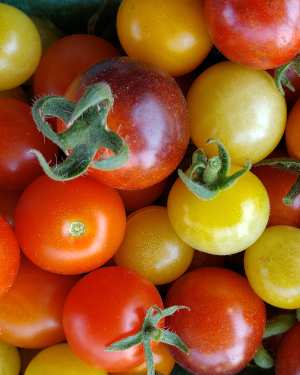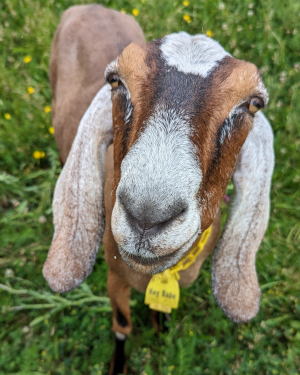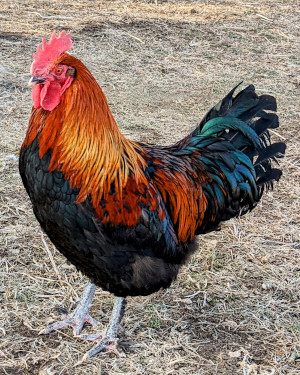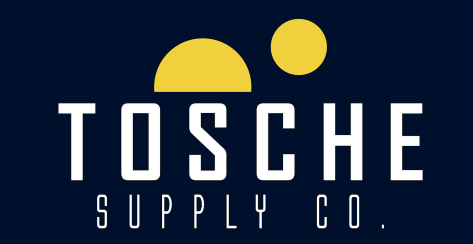
OUR HERD
We have two types of goats on our farm - cashmere goats, and dairy goats.
The cashmere goats are North American Cashmere, and our current animals produce white cashmere. In the future, we'd like to expand into black and red animals for gray/brown and cream/apricot cashmere.
Our dairy goats are milked twice daily, and starting in 2024 we will be going on milk test, so production records will be available for our animals. We currently have Nubian and Mini-Nubian dairy goats. Our focus moving forward will be on breeding show-quality Nubians with high production, excellent conformation, and a strong mammary system.
Pasture & Parasite Management
Our goats are rotationally grazed, meaning we move their mobile fence every third day to provide constant access to fresh browse. This helps maintain our pasture and prevent over-grazing, as well as breaks the life cycle of infective parasites, as the goats are never on a grazing patch for long enough to consume infective worm larvae. We do our own fecal tests here on the farm, and we only treat animals for parasites when they need treatment - we never deworm the whole herd on a schedule, as this contributes to parasite dewormer resistance, and makes it impossible to treat active infestations when they threaten the health of an animal. By performing our own fecals, we can regularly check every individual animal's status, and make personalized treatment decisions.
Biosecurity
We maintain a clean herd with regular biosecurity blood tests on every animal over 6 months of age.
Click here to see our biosecurity reports, with tests for CAE, CL, Johne's, and Q-Fever.
June 2023 Biosecurity Report
April 2023 Biosecurity Report

We have two types of goats on our farm - cashmere goats, and dairy goats.
The cashmere goats are North American Cashmere, and our current animals produce white cashmere. In the future, we'd like to expand into black and red animals for gray/brown and cream/apricot cashmere.
Our dairy goats are milked twice daily, and starting in 2024 we will be going on milk test, so production records will be available for our animals. We currently have Nubian and Mini-Nubian dairy goats. Our focus moving forward will be on breeding show-quality Nubians with high production, excellent conformation, and a strong mammary system.
Pasture & Parasite Management
Our goats are rotationally grazed, meaning we move their mobile fence every third day to provide constant access to fresh browse. This helps maintain our pasture and prevent over-grazing, as well as breaks the life cycle of infective parasites, as the goats are never on a grazing patch for long enough to consume infective worm larvae. We do our own fecal tests here on the farm, and we only treat animals for parasites when they need treatment - we never deworm the whole herd on a schedule, as this contributes to parasite dewormer resistance, and makes it impossible to treat active infestations when they threaten the health of an animal. By performing our own fecals, we can regularly check every individual animal's status, and make personalized treatment decisions.
Biosecurity
We maintain a clean herd with regular biosecurity blood tests on every animal over 6 months of age.
Click here to see our biosecurity reports, with tests for CAE, CL, Johne's, and Q-Fever.




